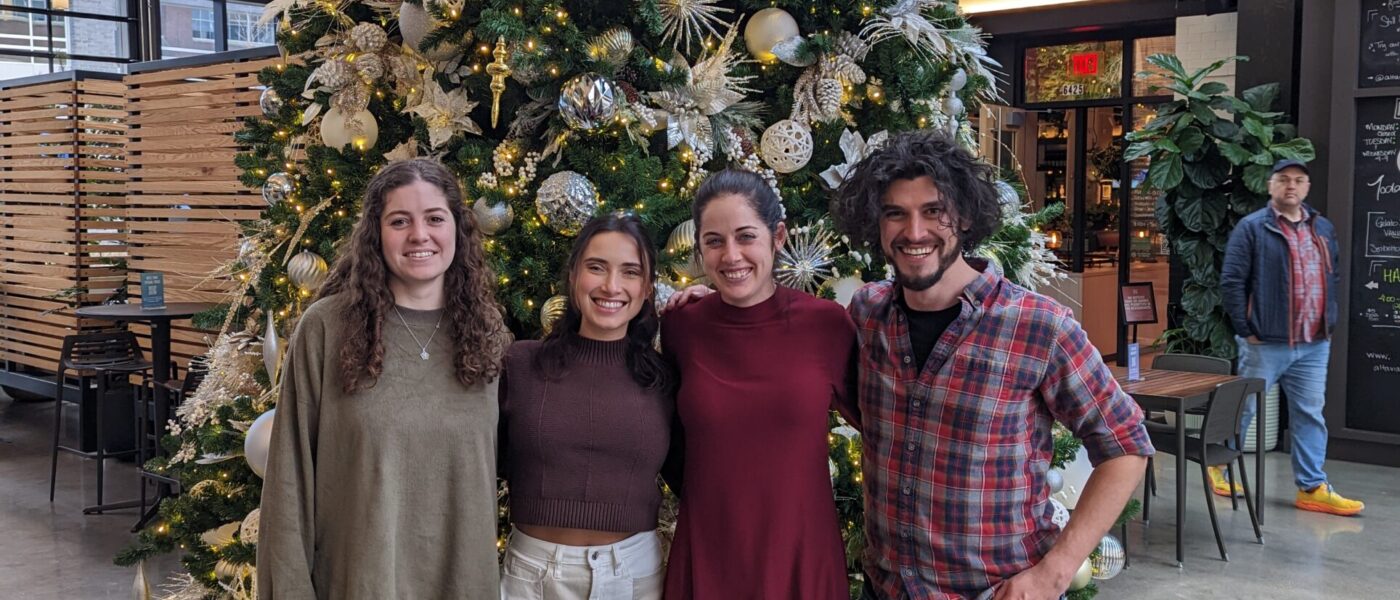 Hornbostel Research Group gets in the holiday spirit (December 2022).
Hornbostel Research Group gets in the holiday spirit (December 2022).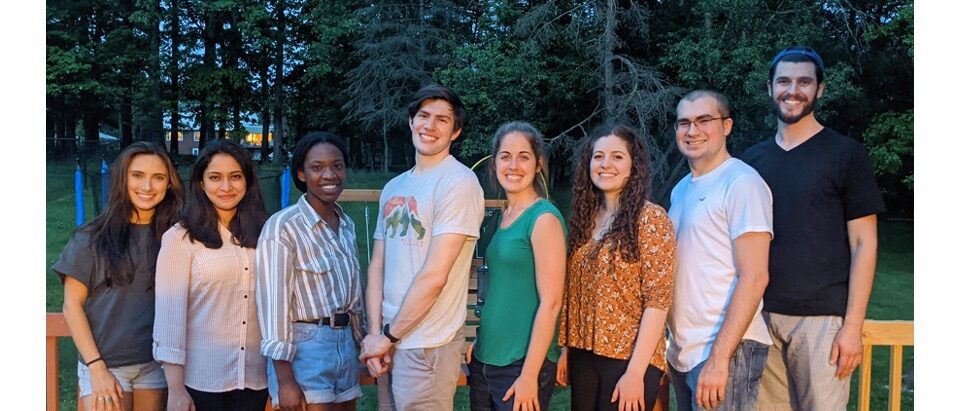 Hornbostel Research Group at a cookout (Summer 2021).
Hornbostel Research Group at a cookout (Summer 2021).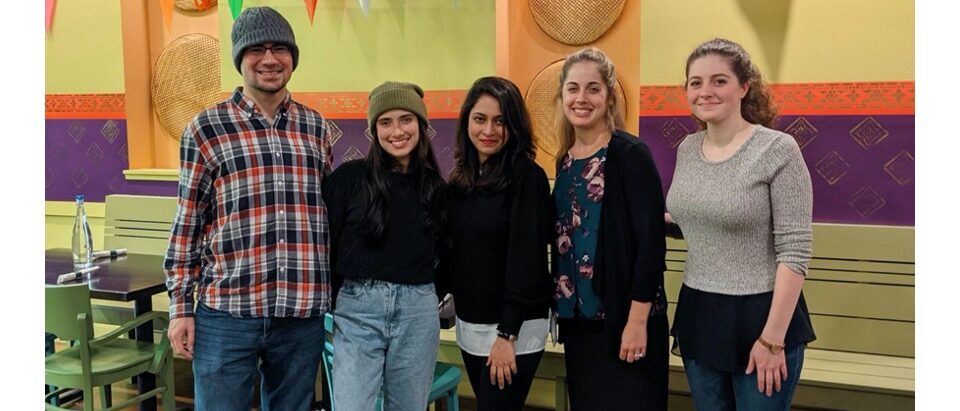 Going-away party for Mahpara (Fall 2021). From left to right: Aaron Esquino, Joanna Rivero, Mahpara Habib, Katherine Hornbostel, Iza Lantgios.
Going-away party for Mahpara (Fall 2021). From left to right: Aaron Esquino, Joanna Rivero, Mahpara Habib, Katherine Hornbostel, Iza Lantgios.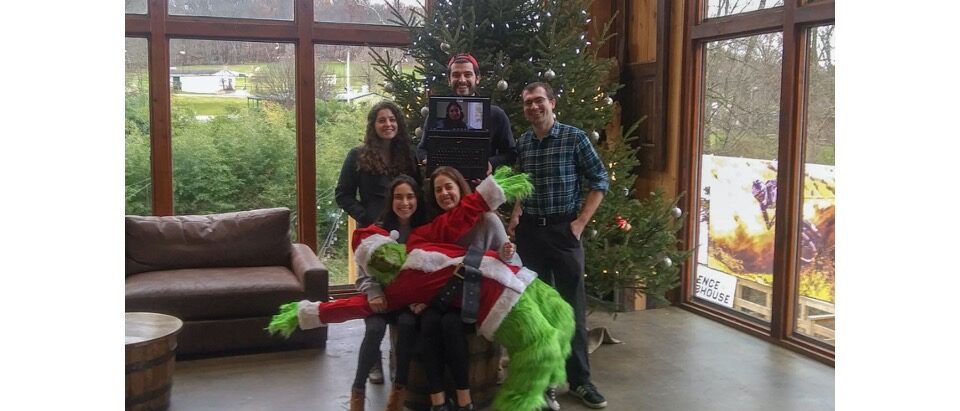 Taking a break with The Grinch at grad student writing group (December 2021).
Taking a break with The Grinch at grad student writing group (December 2021).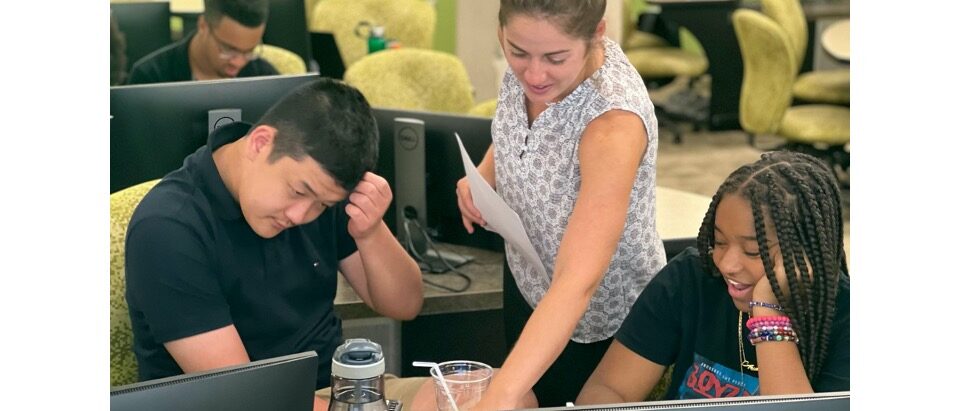 Dr. Hornbostel helps high school students work on carbon capture calculations at LEAD summer outreach program (summer 2022).
Dr. Hornbostel helps high school students work on carbon capture calculations at LEAD summer outreach program (summer 2022).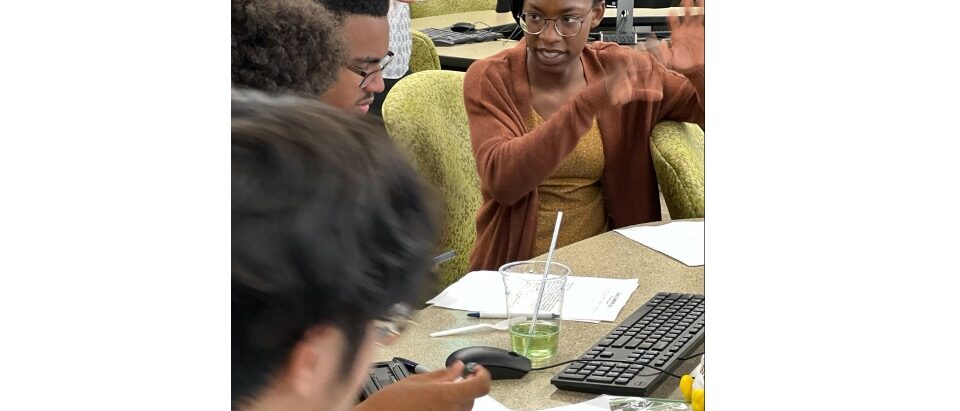 Undergrad research student Zoe Neal (far right) explains a concept to high school students at the LEAD summer outreach program (summer 2022).
Undergrad research student Zoe Neal (far right) explains a concept to high school students at the LEAD summer outreach program (summer 2022).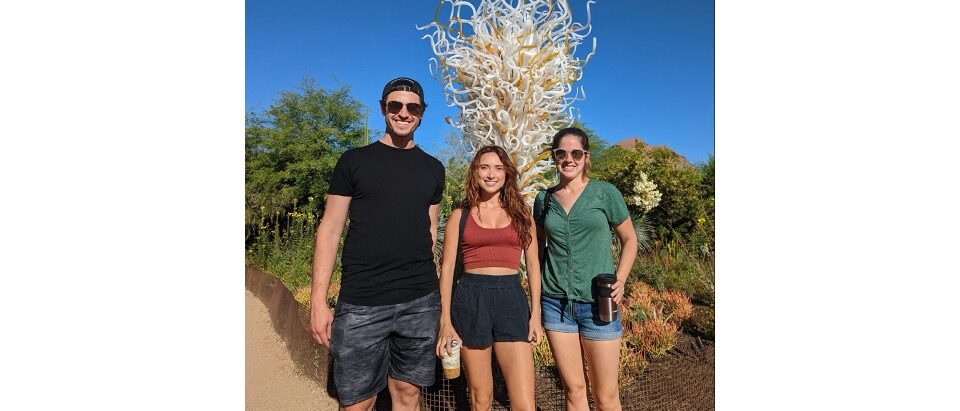 Touring the botanical gardens in Tempe, AZ after attending the North American Membrane Society (NAMS) meeting in May 2022. From left to right: Austin Lieber, Joanna Rivero, Katherine Hornbostel
Touring the botanical gardens in Tempe, AZ after attending the North American Membrane Society (NAMS) meeting in May 2022. From left to right: Austin Lieber, Joanna Rivero, Katherine Hornbostel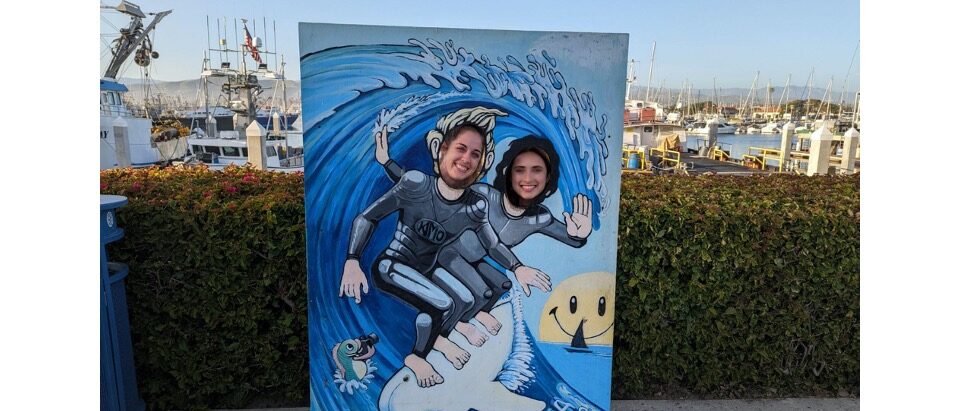 Exploring the boardwalk in Ventura, CA during the Gordon Research Conference: Carbon Capture in April 2022. From left to right: Katherine Hornbostel, Joanna Rivero
Exploring the boardwalk in Ventura, CA during the Gordon Research Conference: Carbon Capture in April 2022. From left to right: Katherine Hornbostel, Joanna Rivero
 Hornbostel Research Group gets in the holiday spirit (December 2021).
Hornbostel Research Group gets in the holiday spirit (December 2021). Hornbostel Research Group at a cookout (summer 2021).
Hornbostel Research Group at a cookout (summer 2021). Going-away party for Mahpara (Fall 2021).
Going-away party for Mahpara (Fall 2021). Taking a break with The Grinch at grad student writing group (December 2021).
Taking a break with The Grinch at grad student writing group (December 2021). Dr. Hornbostel helps high school students work on carbon capture calculations at LEAD summer outreach program (summer 2022).
Dr. Hornbostel helps high school students work on carbon capture calculations at LEAD summer outreach program (summer 2022). Undergrad research student Zoe Neal explains a concept to high school students at the LEAD summer outreach program (summer 2022).
Undergrad research student Zoe Neal explains a concept to high school students at the LEAD summer outreach program (summer 2022). Touring the botanical gardens in Tempe, AZ after attending the North American Membrane Society (NAMS) meeting (May 2022).
Touring the botanical gardens in Tempe, AZ after attending the North American Membrane Society (NAMS) meeting (May 2022). Exploring the boardwalk in Ventura, CA during the Gordon Research Conference: Carbon Capture in (April 2022).
Exploring the boardwalk in Ventura, CA during the Gordon Research Conference: Carbon Capture in (April 2022).
About Hornbostel Research Group
Dr. Katherine Hornbostel has been an Assistant Professor in the Mechanical Engineering & Materials Science department at the University of Pittsburgh since January 2018. Her research group focuses on multi-scale modeling of clean energy systems, with an emphasis on carbon capture systems. Dr. Hornbostel received her BS and MS in mechanical engineering from Georgia Tech in 2010 and 2012, respectively. She then received her PhD in mechanical engineering from MIT in 2016. Her PhD thesis research under Dr. Ahmed Ghoniem involved modeling solid oxide fuel cells for power production from coal syngas. Dr. Hornbostel was a postdoc research fellow at Lawrence Livermore National Lab, where she developed a model for encapsulated solvents for power plant carbon capture. Dr. Hornbostel spoke about her postdoc work on Freakonomics Radio Live and also received press for her breast pump invention that she created after having twins in grad school. Dr. Hornbostel was also recently named a Scialog: Negative Emissions Science Fellow and has received federal research funding from NETL, Sloan Foundation and ARPA-E to fund various carbon capture research projects.
About Hornbostel Research Group
Dr. Katherine Hornbostel has been an Assistant Professor in the Mechanical Engineering & Materials Science department at the University of Pittsburgh since January 2018. Her research group focuses on multi-scale modeling of clean energy systems, with an emphasis on carbon capture systems. Dr. Hornbostel received her BS and MS in mechanical engineering from Georgia Tech in 2010 and 2012, respectively. She then received her PhD in mechanical engineering from MIT in 2016. Her PhD thesis research under Dr. Ahmed Ghoniem involved modeling solid oxide fuel cells for power production from coal syngas. Dr. Hornbostel was a postdoc research fellow at Lawrence Livermore National Lab, where she developed a model for encapsulated solvents for power plant carbon capture. Dr. Hornbostel spoke about her postdoc work on Freakonomics Radio Live and also received press for her breast pump invention that she created after having twins in grad school. Dr. Hornbostel was also recently named a Scialog: Negative Emissions Science Fellow and has received federal research funding from NETL, Sloan Foundation and ARPA-E to fund various carbon capture research projects.